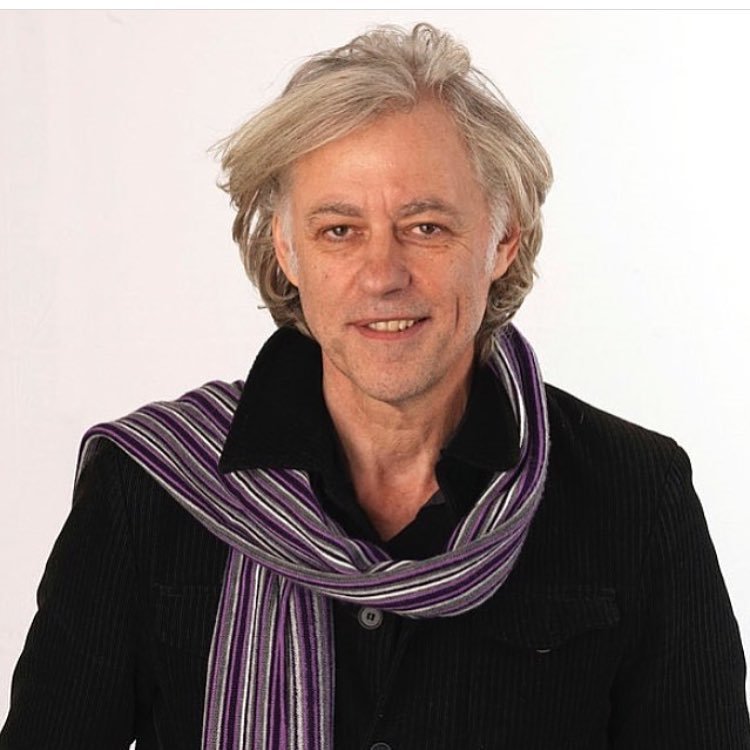Few figures in British and Irish public life have left a mark as deep and lasting as Sir Bob Geldof. As the world marks the 40th anniversary of Live Aid, Geldof’s name is once again trending across the UK. His unique blend of music, activism, and outspoken honesty continues to inspire, provoke, and challenge. This article explores his extraordinary journey, the enduring legacy of Live Aid, and why his voice still matters in 2025.
The Early Years: From Dublin to Stardom
Bob Geldof’s story began in Dublin, where he was born in 1951. He rose to fame in the late 1970s as the lead singer of The Boomtown Rats, a band that captured the raw energy and rebellious spirit of the punk era. Their hit “I Don’t Like Mondays” shot to the top of the UK charts, making Geldof a household name. Yet, even in those days, he stood out for his sharp wit and fierce drive.
The Turning Point: Ethiopia and the Birth of Band Aid
In 1984, a BBC report by Michael Buerk brought the Ethiopian famine into British living rooms. The images were harrowing. Geldof, deeply moved, decided to act. He called on his friends in the music industry, and together with Midge Ure, formed Band Aid. Their single, “Do They Know It’s Christmas?”, became one of the fastest-selling singles in UK history, raising millions for famine relief.
Geldof’s response to criticism was always direct. In a recent interview, he recalled how young people, even those struggling themselves, contributed what they could. He insisted that the Band Aid project was about solidarity, not charity, and that every pound mattered.
Live Aid: When Music Changed the World
On 13 July 1985, Geldof organised Live Aid, a global concert broadcast to over one billion people in more than 100 countries. The event raised over £109 million for famine relief and became a landmark in both music and humanitarian history. The concert featured legendary performances, including Queen’s iconic set at Wembley Stadium.
Geldof’s approach was relentless. He famously urged viewers to donate, driving home the urgency of the crisis. The phrase “give us your money” entered the national lexicon, symbolising his refusal to accept apathy. Donations soared after his passionate plea.
The Legacy of Live Aid: 40 Years On
Four decades later, Live Aid’s impact is still felt. BBC Two’s recent documentary, “Live Aid at 40: When Rock and Roll Took on the World”, has reignited public interest in the event and its legacy. The series highlights how Live Aid, Band Aid, and later Live 8, reshaped the relationship between music, charity, and politics.
Geldof has always insisted that Live Aid was not just about music. It was a political act, a challenge to the prevailing ethos of individualism in 1980s Britain. He argued that the concert stood against the idea that “greed is good”, instead promoting the power of collective action. His words still resonate in a world grappling with inequality and humanitarian crises.

Geldof’s Activism in the Modern Era
Geldof’s activism did not end with Live Aid. He went on to organise Live 8 in 2005, urging world leaders to address poverty in Africa. He has supported numerous causes, from human rights to environmental issues, and remains a vocal critic of global inaction.
In recent years, Geldof has spoken out about new humanitarian crises, including famine in Sudan and Ethiopia. He has criticised global powers for failing to match the UK’s efforts in providing aid. His commitment to justice remains undimmed, and he continues to use his platform to demand change.
A Life in the Spotlight: Music, Media, and Personal Struggles
Beyond activism, Geldof has enjoyed a varied career. He co-owned Planet 24, the production company behind “The Big Breakfast”, and founded other media ventures. His personal life, including his relationship with the late Paula Yates, has often been in the public eye. Despite personal tragedies, Geldof has remained resilient, channeling his experiences into his work and public statements.
The Boomtown Rats and the Return to the Stage
Geldof has never left music behind. The Boomtown Rats continue to perform, and he remains an electrifying presence on stage. His recent shows, such as the “LIFE – WTF” tour, blend storytelling and music, offering fans a glimpse into his extraordinary journey. Audiences are drawn not just by nostalgia, but by the energy and honesty that define his performances.
Reflections on Fame, Criticism, and the Future
Geldof is known for his bluntness. He has faced criticism, including accusations of having a “white saviour complex”, but he rejects such labels, arguing that the real issue is indifference. He has always seen himself as a conduit for action, not a hero.
As the world marks the 40th anniversary of Live Aid, Geldof’s message is as urgent as ever. He asks whether such unity is possible today, in an age of division and distraction. Yet, he remains hopeful, believing that collective action can still make a difference.
Continuing Activism and Public Engagement
Geldof’s activism is as vigorous as ever. He remains a vocal critic of foreign aid cuts, arguing that such reductions have led to tragic consequences for vulnerable populations worldwide. During a recent address at London’s Shaftesbury Theatre, he condemned both political and business leaders for their lack of empathy, stating, “Empathy is the glue of civilization.” He continues to use high-profile platforms to advocate for humanitarian causes, ensuring that the proceeds from projects like the musical Just For One Day support the Band Aid Charitable Trust, which has raised nearly £900,000 for global relief efforts in 2025 alone.
Conclusion:
Bob Geldof’s story is one of persistence, passion, and an unwavering belief in the power of ordinary people to change the world. From his early days with The Boomtown Rats to his global campaigns against poverty, he has never shied away from controversy or challenge.
As new generations discover the story of Live Aid, Geldof’s legacy endures. His life reminds us that music can be more than entertainment—it can be a force for justice and hope. In 2025, as Britain and the world face new crises, his voice remains a vital call to action.
Read More: Erin Patterson: Mushroom Murder Case Grips Two Continents

